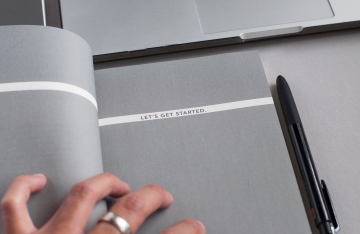Retail may be a tough business in terms of quality, manpower and seasonal rush. Without a doubt, though, if you plan to wake up one morning with the idea to start up a store — be it books, clothes, bath products or whatever — know that you potentially have an incredible money maker, possibly a future chain, on your hands.
Retail is a profitable industry. No ifs, ands or buts about it. One thing’s for sure, though: the business has to be done right, almost with the stars aligned divinely, because starting up that first store can be costlier than any other corporate endeavor. That presents, undoubtedly, a risk. A calculated risk? Possibly.

Here’s what you have to keep in mind when starting up your own retail store:
Keep an Eye on Your Rental and Operating Costs
It’s very much like moving into a new home. Your costs, though, will probably be double or triple whatever you’d pay for a single-family home. The security deposits are a ton more, plus that rent will choke up any checking account. When it’s all said and done, you might be looking at the total cost per month adding up to over $4K. Let’s be clear here — you need to plan your finances well in advance before even paying up that first month’s rent.
You’ll Undoubtedly Need to Improve Your Location
I didn’t even mention the fact that the location is key. Aside from that, there’s also the cost of improving your location. A corporate structure, whatever it may be, may not be adjusted to fit the mold of a retail store, so be prepared to provide finances for….
- Store Fixtures
- Poles and Racks
- Shelves and Gondolas
- Mannequins
- Cash Counters
- Sizers and Bookcases
- Other Types of Construction
This is especially crucial regarding the fact that you’re not simply creating a retail store, but a brand. The construction has to fit a certain style and direction characteristic of your goals in defining the product you’ll be selling. For instance: if it’s bathing products and cosmetics, your design might match that of a salon.
Overall, you could be looking at costs totalling up to $7K, possibly more. That could even include the branding of your logo, the parking lot and even the sign situated right by the street.
Then There’s the Inventory You Need to Worry About
For most retail stores, there’s one major focal point standing as the biggest investment of all: the product. You have to purchase your inventory in order to sell it! This, again, can cost thousands, possibly millions, depending on the product. You then have the challenge of not only storing that inventory, but planning your marketing and advertising to make up for the costs you had to shell out, selling all that merchandise to a waiting demographic dying to see if you’ve got the goods like the everyday Macy’s, Kohl’s or Barnes & Noble.
Don’t Forget Other Miscellaneous Operating Costs
That’s not all. You’ve got to make sure you include expenses for hangers (if you’re selling clothing), liability insurance (for those customers slipping on your floors and potentially filing lawsuits), accounting setups, cleaning supplies, office needs, association fees and directories. All of that could potentially cost over a grand, easy.
Information Technology? That’s a Definite.
Just about any business would need it. Any industry would require it. Devote your capital funds to it. That would include such aspects as….
- Electronics (Computers, Printers and Phones)
- IT Consultancy and Support
- Internet Services
- Domain Registration
- Website Hosting, Design and Development
- Specialized POS Software
Don’t be surprised if this also tends to squeeze the day job paycheck you’re still relying on to provide for the inevitable launch of this retail business. You could be looking at costs of over $6K.
Get Going on the Marketing
Why? How else are you going to start making up all that money you had to throw in there? People won’t know about your store unless you say something about it. That can include the costs of your exterior and center pylon signs. All interior signage and décor also has an expense, plus the very relevant need to trademark your signage and brand.
Don’t do the brand or business card design yourself, though. You will have to hire a professional to handle all of that. Flyers, though, you might be able to pull on your own, unless you’re not an innate copywriter at heart. Don’t forget the drafting of coupons and rebates. Match the industry, too; that, of course, will take some research. Just be sure you save up maybe over $8K in funds.
What Follows the Marketing? Public Relations.
In all honesty, many would think that this isn’t a terribly huge deal as well as not a very good way to spend the money. After all — who cares how you play up your store? Simply make it available, right?
Don’t be fooled. That grand opening event, which includes the food, beverages and entertainment, is crucial to developing the brand and community awareness. This one explosive event would be enough to open up that profitable pandora’s box in the media, developing that one single push to propel the marketing on its way. Think of it as a kid on a 3-wheel bike: all that kid needs is a little push. Marketing is like that. At the end of it all, PR costs might go over a grand.
Before You Know It….
You’ve got a retail store on your hands. Bear in mind that you’ve potentially spent well over $30K just to make it happen. Don’t faint. The rest is up to the marketing, your passion, your ability to get others involved, willing to work with you and for you as well.
It’s then where you’ll determine if the investment was worth it. Work hard. Consult with your skilled business lawyer, too, about your options. Above all else…. Have some faith. Retail’s the American Dream when you think about it. The good thing is that this basic outline of what to expect might make it possible to ensure that this dream never becomes a retail nightmare.
Matt Faustman is the CEO at UpCounsel. You can follow his business insights on Twitter at @upcounsel.




